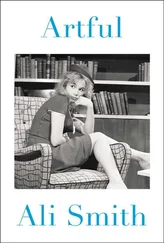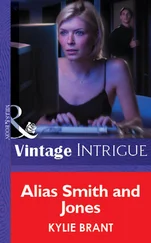George has become more and more interested in spite of herself and in spite of how little this picture — or any of the pictures in this room, all made more than five hundred years ago — seems on first glance to have to do with the real world. Now when she comes into Room 55, it’s weird, but it’s like she is meeting an old friend, albeit one who won’t look her in the eye because the saint is always looking off to the side. But that’s good too. It’s good, to be seen past, as if you’re not the only one, as if everything isn’t happening just to you. Because you’re not. And it isn’t.
A friendly work of art. That was when her mother said the thing about how the art they were looking at was a bit like you. Generous but also, what was it? Something else.
Sarcastic?
George can’t remember.
At first, coming here, she knew consciously all the time that she was seeing a picture her mother never even knew existed or might well have walked past without seeing, like people do, on their way to see the more famous pictures.
Today what she sees is the way the rockscape on one side of the saint is broken, rubbly, as if not yet developed, and on the other side has transformed into buildings that are rather grand and fancy.
It is as if just passing from one side of the saint to the other will result if you go one way in wholeness and if you go the other in brokenness.
Both states are beautiful.
She looks across at the picture to the left of the saint, past the open door. It’s of a woman sitting on a fancy throne holding a sprig of cherries, by a painter called Cosimo Tura, and it has those little glass or coral balls in it too, on a string above her head. So does the one to George’s left, which is a Virgin Mary and Baby and is by Cosimo Tura as well.
The coral and glass balls on the St Vincent picture are by far the brightest and most convincing.
Maybe there was a glass and coral ball school where the painters all went to learn to do these things.
Today is Wednesday. She is missing double maths, English, Latin, biology, history, double French. Today instead she is going to count the number of people who pass through Room 55 in a given half-hour (she will start at noon) and how many of those people stop to look at the Francesco del Cossa picture and for how long.
From this she will be able to form a statistical study of attention spans and art.
Then she will get herself some lunch, then off back to King’s Cross and home in time to be there for Henry getting out of school.
Then she will slip the bank card back into its place as usual and go out into the garden, if it’s not raining, and say the daily hello and how are you today that she’s pledged to the girl in the yurt. She’ll come in and make supper and hope her father comes home in not too bad a shape.
It is lovely, being intoxicated, her father said the other night. It is like wearing a whole fat woolly sheep between me and the world.
The smell of an old sheep in the house, George thought when he said it, its fleece all grassy, matted with excrement, would be hugely preferable to the smell of her father after he’s been drinking.
It was the weekend. She was watching a film on TV. It was about four teenage girls, friends who’d been devastated to find that they were all going to have to spend their summer holidays in different parts of the world. So they made a pact that they’d share a pair of jeans, meaning they’d send the jeans by post from one to the next to the next and so on as a sign of their undying friendship. What happened next was that the pair of jeans acted as a magic catalyst to their lives and saw them through lots of learning curves and self-esteem-getting and being in love, parents’ breaking up, someone dying etc.
When it got to the part where a child was dying of cancer and the jeans helped one of the girls to cope with this, George, sitting on the floor in the front room, howled out loud like a wolf at its crapness.
She decided she’d watch instead one of the DVDs H brought round before she left.
The league of mothers has got your back, H had said handing her a small pile of films all in different languages which her mother had sorted out, in the moving, for your poor friend who likes the 1960s and who is mourning for real .
Mourning for real. George liked the phrase. The top one on the pile next to the DVD player had the actress whose picture is on George’s wall in it. It was about some people who go to a near-deserted island on a boat. Then one of them goes missing. She literally disappears. The people spend the rest of the film looking for her and falling in and out of love with each other, but they never find out where she’s gone or what’s happened to her. George watched it without moving from where she was sitting on the floor from beginning to end. Then she ejected it and took the next film off the top of the pile.
It was called, in French, A Film Like The Others. It had no subtitles and when it started it looked like a bootleg, fuzzy, as if copied from dodgy video.
Her father came into the room and sat in the chair behind her.
She could smell him.
What’s the film, Georgie? he said.
George was about to tell him the title but then she realized that if she told him what it was called he’d think she was being cheeky. This made her laugh.
It’s French, she said.
Nice to hear you laugh, he said behind her.
The film began with some footage of two young men making very small brick walls. They seemed to be learning how to bricklay, could that be it? Over the top of this a lot of people were speaking in a French which George couldn’t really follow. It seemed to be about politics. Then it cut to some young people sitting talking in long grass. There was footage of what looked like strikes and protests, which made George think about the students here, how long they’d lasted in the university building and the stories that went round school about how rough the police and private security men had been to them, which her mother had made her tell her and some of the telling of which she’d sent out in phrases and paragraphs via Subvert.
Her father was maundering on now about the film and song which had made her mother decide to call George her name.
I said but what if you ended up looking like the girl in the film. She’s a bit plain, a bit of a loser. But your mother was right. She liked the notion of an anti-hero. Anti-heroine. She was of the belief that people can be who they really are and still come up trumps against the odds. Including me, I hope. Eh? Eh, Georgie?
Yup, George said.
She sighed. She hated the song from which her name had supposedly come.
Her father started whistling it then singing the bit about how the world would see a new Georgie girl. The people in the film, whose faces you never got to see, just their arms and legs and torsos, sat round and talked about God knows what. The film showed them talking like all that mattered was that they were talking. While they talked they played with stems of the grass they were sitting in. They’d break little bits off it. They’d knot it. They’d split it as if to whistle through it. They’d hold up a stem and burn it with the end of a cigarette as they talked, holding the lit end to it till the bit of grass burnt through and fell off, then starting again further down the stem or with a new bit of grass. Then the film cut to a wall with words sprayed on it. PLUTÔT LA VIE.
You know, her father said behind her, you’ll be leaving me soon, don’t you?
George didn’t turn round.
Purchased that ticket to the moon for me already, have you, then? she said.
Silence, except for the French people all talking years ago. She turned. Her father looked grave. He didn’t look misted or sentimental. He didn’t even look drunk, though the room round him smelt like he couldn’t not be.
Читать дальше












